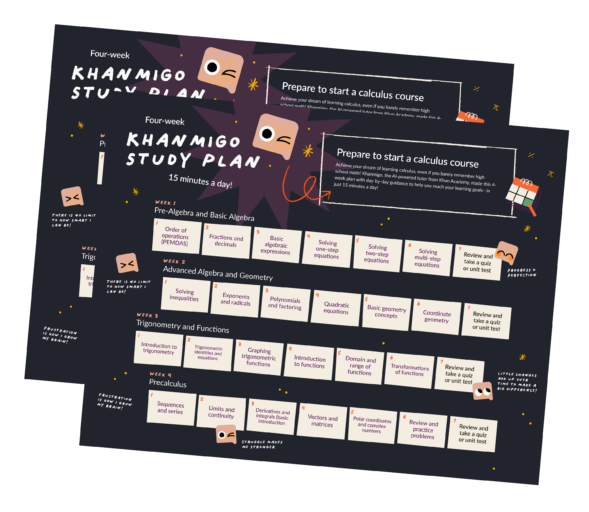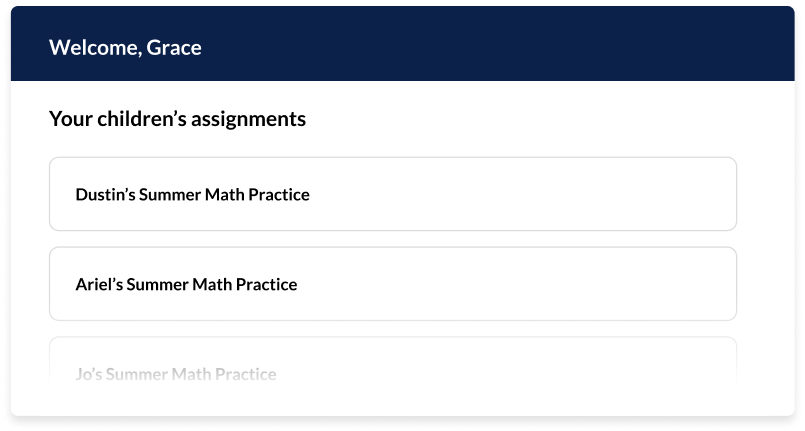Khan Academy is here to help Texas families navigate the school year with confidence. With support from the ExxonMobil Foundation, these resources are designed to match the Texas Essential Knowledge and Skills (TEKS) standards, which guide what students learn in Texas schools.
Here are three easy (and free!) ways to get started:
1. Try our new TEKS-aligned math and science courses
Last year, we launched a set of free TEKS-aligned math and science resources. This year, we’ve added even more, including the following:
 3rd & 4th Grade Math (place value, financial literacy & more)
3rd & 4th Grade Math (place value, financial literacy & more) 8th Grade Integrated Science (hands-on activities and real-world topics)
8th Grade Integrated Science (hands-on activities and real-world topics) High School Math: Geometry, Precalculus, and Algebra 2
High School Math: Geometry, Precalculus, and Algebra 2
These courses are designed to match what your child is learning in school, helping them understand important concepts, not just memorize steps.
2. Personalized study plans built for Texas students
Our TEKS-aligned study plans help your child focus on what they actually need to work on, with:
 Targeted learning: Each plan starts with a quick check-in to see what your child already knows and what they need to work on.
Targeted learning: Each plan starts with a quick check-in to see what your child already knows and what they need to work on. Step-by-step support: They’ll work day by day through the skills they need most.
Step-by-step support: They’ll work day by day through the skills they need most. Confidence-building practice: With focused review and plenty of practice, they’ll be ready to tackle math and science with confidence.
Confidence-building practice: With focused review and plenty of practice, they’ll be ready to tackle math and science with confidence.

3. Stay involved with the Parent Dashboard

You don’t need to be a math expert to help your child succeed. The Khan Academy Parent Dashboard makes it easy to
- track your child’s progress,
- assign practice that fits what they’re doing in school, and
- encourage confidence and independence.
It’s one more way to support learning—without adding stress to your routine.
Start strong this school year
Explore Khan Academy’s free, Texas-specific resources for math and science. All of these resources are free to Texas students and families, thanks to the support of the ExxonMobil Foundation.
The post Three Free Ways to Support Your Texas Student This School Year appeared first on Khan Academy Blog.
Original Article Published at Khan Academy
________________________________________________________________________________________________________________________________





 High School Math:
High School Math:  Targeted learning: Each plan starts with a quick check-in to see what your child already knows and what they need to work on.
Targeted learning: Each plan starts with a quick check-in to see what your child already knows and what they need to work on. Step-by-step support: They’ll work day by day through the skills they need most.
Step-by-step support: They’ll work day by day through the skills they need most. Confidence-building practice: With focused review and plenty of practice, they’ll be ready to tackle math and science with confidence.
Confidence-building practice: With focused review and plenty of practice, they’ll be ready to tackle math and science with confidence.
